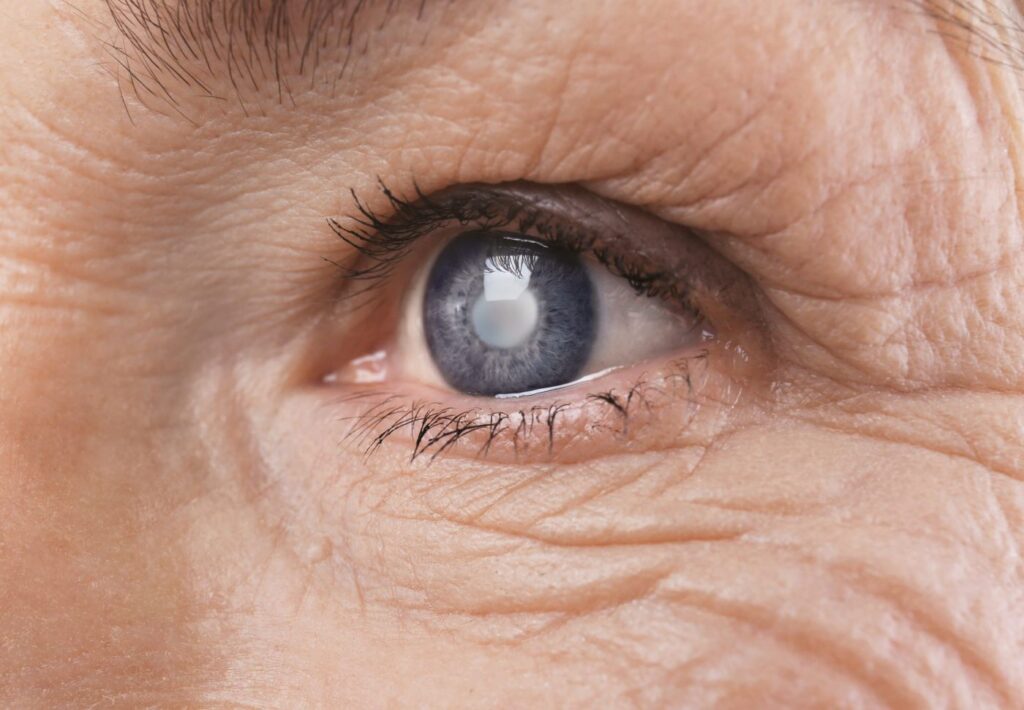Health Conditions
The First Sign of Glaucoma Revealed
Glaucoma is a progressive eye condition that can cause irreversible damage if left untreated. While there are several types of glaucoma, the most common form, called open-angle glaucoma, often develops without any noticeable symptoms in the early stages. That’s why regular eye exams are essential in detecting glaucoma before it causes significant vision loss.
By uncovering this initial indicator, we aim to empower readers with knowledge about early detection and proactive measures to safeguard their vision. Join us on a journey to understand the telltale sign that may herald the presence of glaucoma, shedding light on this eye disease and its implications for eye care and vision preservation.
Are you concerned about your eye health? Wondering if you might be experiencing the first signs of glaucoma? Look no further. In this article, we will explore the first sign of glaucoma and what you need to know to protect your vision.
Understanding the First Signs of Glaucoma
Glaucoma is often referred to as the “silent thief of sight” because it can develop gradually without any obvious symptoms. However, there is one early sign that you should pay attention to – increased intraocular pressure (IOP).
Elevated IOP occurs when the fluid inside the eye cannot properly drain, leading to increased pressure and potential damage to the optic nerve. This is why measuring and monitoring your eye pressure is a crucial part of glaucoma diagnosis and management.
In the early stages, increased IOP may not cause any noticeable changes in your vision. It is only when the optic nerve becomes damaged that you may start experiencing symptoms such as blurred vision, loss of peripheral vision, or the appearance of halos around lights. By this point, the damage is often irreversible, highlighting the importance of early detection and treatment.

Common Symptoms of Glaucoma
While increased intraocular pressure is the first sign of glaucoma, it is not the only symptom you should be aware of. As the condition progresses, you may experience a gradual loss of vision, starting from the outer edges and eventually leading to tunnel vision.
Other symptoms may include eye pain, redness, and a sudden decrease in vision. However, it’s important to note that these symptoms may vary depending on the type and stage of glaucoma.
Risk Factors for Developing Glaucoma
Certain factors can increase your risk of developing glaucoma. These include age (being over 60), a family history of glaucoma, certain medical conditions (such as diabetes and high blood pressure), and a history of eye injuries or surgeries.
People of African, Hispanic, and Asian descent are also at a higher risk for developing certain types of glaucoma. Understanding these risk factors can help you be more proactive in monitoring your eye health and seeking regular eye exams.

Importance of Early Detection and Diagnosis
Early detection and diagnosis play a crucial role in managing glaucoma and preserving your vision. Regular eye exams, which include measuring your intraocular pressure, can help detect glaucoma before it causes significant damage.
Your eye care professional may also perform other tests, such as a visual field test and optic nerve evaluation, to assess the extent of the damage and determine the most appropriate treatment plan.
Diagnostic Tests for Glaucoma
In addition to measuring intraocular pressure, there are several diagnostic tests that can aid in the diagnosis of glaucoma. These tests include a visual field test, which assesses your peripheral vision, and an optic nerve evaluation, which examines the appearance of your optic nerve. Your eye care professional may also use imaging techniques, such as optical coherence tomography (OCT), to get a detailed view of your eye’s structures and identify any signs of glaucoma.

Treatment Options for Glaucoma
While there is currently no cure for glaucoma, there are several treatment options available to manage the condition and prevent further vision loss. The most common treatment approach is the use of eye drops to reduce intraocular pressure.
These eye drops work by either increasing the outflow of fluid from the eye or decreasing the production of fluid. In some cases, oral medications or surgical procedures may be recommended to control intraocular pressure and prevent further damage to the optic nerve.
Lifestyle Changes to Manage Glaucoma
In addition to medical treatments, certain lifestyle changes can help manage glaucoma and minimize its impact on your vision. Regular exercise, maintaining a healthy weight, and avoiding smoking can all contribute to better eye health. It’s also important to follow your eye care professional’s recommendations regarding medication usage and regular check-ups to ensure that your condition is properly managed.
Tips for Preventing Glaucoma
While glaucoma cannot be completely prevented, there are steps you can take to reduce your risk of developing the condition or slow its progression. These include:
- Getting regular eye exams: Routine eye exams can help detect glaucoma in its early stages, allowing for timely intervention.
- Knowing your family history: Being aware of any family history of glaucoma can help you understand your risk and take appropriate precautions.
- Protecting your eyes: Wearing protective eyewear when participating in activities that could pose a risk to your eyes can help prevent eye injuries that may lead to glaucoma.
Conclusion
Glaucoma is a serious eye condition that requires early detection and proper management to preserve your vision. Increased intraocular pressure is the first sign of glaucoma, but regular eye exams and diagnostic tests are necessary for a definitive diagnosis.
By understanding the risk factors, symptoms, and treatment options, you can take proactive steps to protect your eye health. Remember to consult with an eye care professional if you have any concerns about your vision or if you suspect you may have glaucoma. Taking care of your eyes today can make a significant difference in your vision tomorrow.
Trusted Health, Wellness, and Medical advice for your well-being



